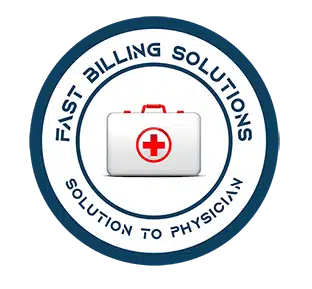
In recent years, the healthcare landscape has undergone significant transformations driven by regulatory changes and policy reforms. These shifts have had profound implications for medical billing practices, reshaping the way healthcare services are delivered, documented, and reimbursed. In this blog, we delve into the multifaceted impact of healthcare reforms on medical billing practices, exploring key trends, challenges, and opportunities shaping the industry.
Understanding Healthcare Reforms
Healthcare reforms encompass a wide range of legislative initiatives aimed at improving the accessibility, affordability, and quality of healthcare services. From the implementation of the Affordable Care Act (ACA) to ongoing efforts to modernize healthcare delivery systems, reforms have catalyzed sweeping changes across the healthcare continuum. These reforms seek to address systemic inefficiencies, enhance patient outcomes, and promote equitable access to care.
Impact on Medical Billing Practices
1. Regulatory Compliance
Healthcare reforms have introduced stringent regulatory requirements governing billing practices, coding standards, and documentation guidelines. Medical billing companies must stay abreast of evolving regulations, such as the transition to ICD-10 coding and the implementation of value-based payment models. Compliance with regulatory mandates is paramount to avoid penalties, audits, and reimbursement denials.
2. Transition to Value-Based Care
The shift from fee-for-service to value-based care models has fundamentally altered the reimbursement landscape. Medical billing practices must adapt to value-based payment structures that incentivize quality, efficiency, and patient-centered care. This transition necessitates new billing methodologies, performance metrics, and data analytics capabilities to measure and report on outcomes.
3. Integration of Technology
Healthcare reforms have spurred widespread adoption of electronic health records (EHRs), billing software, and health information exchange (HIE) platforms. Medical billing practices leverage technology to streamline billing processes, improve claims accuracy, and enhance interoperability across healthcare systems. Integration of electronic systems enhances efficiency, reduces administrative burden, and supports data-driven decision-making.
4. Financial Pressures
While healthcare reforms aim to contain costs and promote efficiency, they also introduce financial challenges for medical billing practices. Reimbursement rates may fluctuate, administrative burdens may increase, and revenue cycles may elongate due to regulatory complexities. Medical billing companies must navigate these financial pressures strategically, optimizing revenue streams and minimizing revenue leakage.
5. Emphasis on Transparency and Accountability
Healthcare reforms prioritize transparency and accountability in billing practices, fostering greater scrutiny of billing codes, billing practices, and billing accuracy. Medical billing companies must uphold ethical standards, maintain accurate documentation, and demonstrate compliance with billing regulations. Transparency builds trust with patients, payers, and regulatory agencies, enhancing practice reputation and credibility.
Strategies for Success
1. Continuous Education and Training
Stay informed about evolving healthcare reforms, coding guidelines, and billing regulations through ongoing education and training programs. Invest in professional development opportunities for billing staff to enhance their knowledge and skills in compliance, coding accuracy, and revenue cycle management.
2. Technology Adoption and Optimization
Harness the power of technology to streamline billing processes, automate repetitive tasks, and improve billing accuracy. Implement advanced billing software, EHR systems, and revenue cycle management tools to optimize efficiency and enhance operational performance. Leverage data analytics to identify revenue opportunities, monitor key performance indicators, and drive informed decision-making.
3. Collaborative Partnerships
Forge strategic partnerships with healthcare providers, payers, and technology vendors to navigate healthcare reforms effectively. Collaborate with stakeholders to align billing practices with value-based care initiatives, improve care coordination, and enhance patient outcomes. Foster a culture of collaboration and communication to address challenges and seize opportunities in a rapidly evolving healthcare landscape.
4. Adaptable and Agile Approach
Maintain flexibility and agility in response to changing regulatory requirements, market dynamics, and patient needs. Anticipate future trends and proactively adjust billing strategies, workflows, and technologies to stay ahead of the curve. Embrace innovation, experimentation, and continuous improvement to thrive in an ever-evolving healthcare environment.
Conclusion
Healthcare reforms have ushered in a new era of change and opportunity for medical billing practices. By understanding the multifaceted impact of reforms on billing processes, embracing technological advancements, and adopting strategic approaches, medical billing companies can navigate challenges, capitalize on opportunities, and thrive in the dynamic landscape of healthcare. With a commitment to excellence, compliance, and innovation, medical billing practices can play a pivotal role in advancing the goals of healthcare reform and improving patient outcomes.
Get Free Demo of your Practice Today!Fast Billing Solutions – Your Trusted Partner in Streamlined Medical Billing!
At Fast Billing Solutions, we understand the challenges that healthcare providers face in the complex realm of medical billing. With a decade of unwavering commitment, we have been at the forefront, providing comprehensive solutions to alleviate the pain points that often accompany the billing process.
Our dedicated team combines expertise and innovation to tackle coding errors, navigate complex billing procedures, address time-consuming documentation, unravel payer policies, and streamline overall revenue cycles. We pride ourselves on offering tailored solutions that not only resolve existing issues but also ensure long-term success for healthcare practices.
